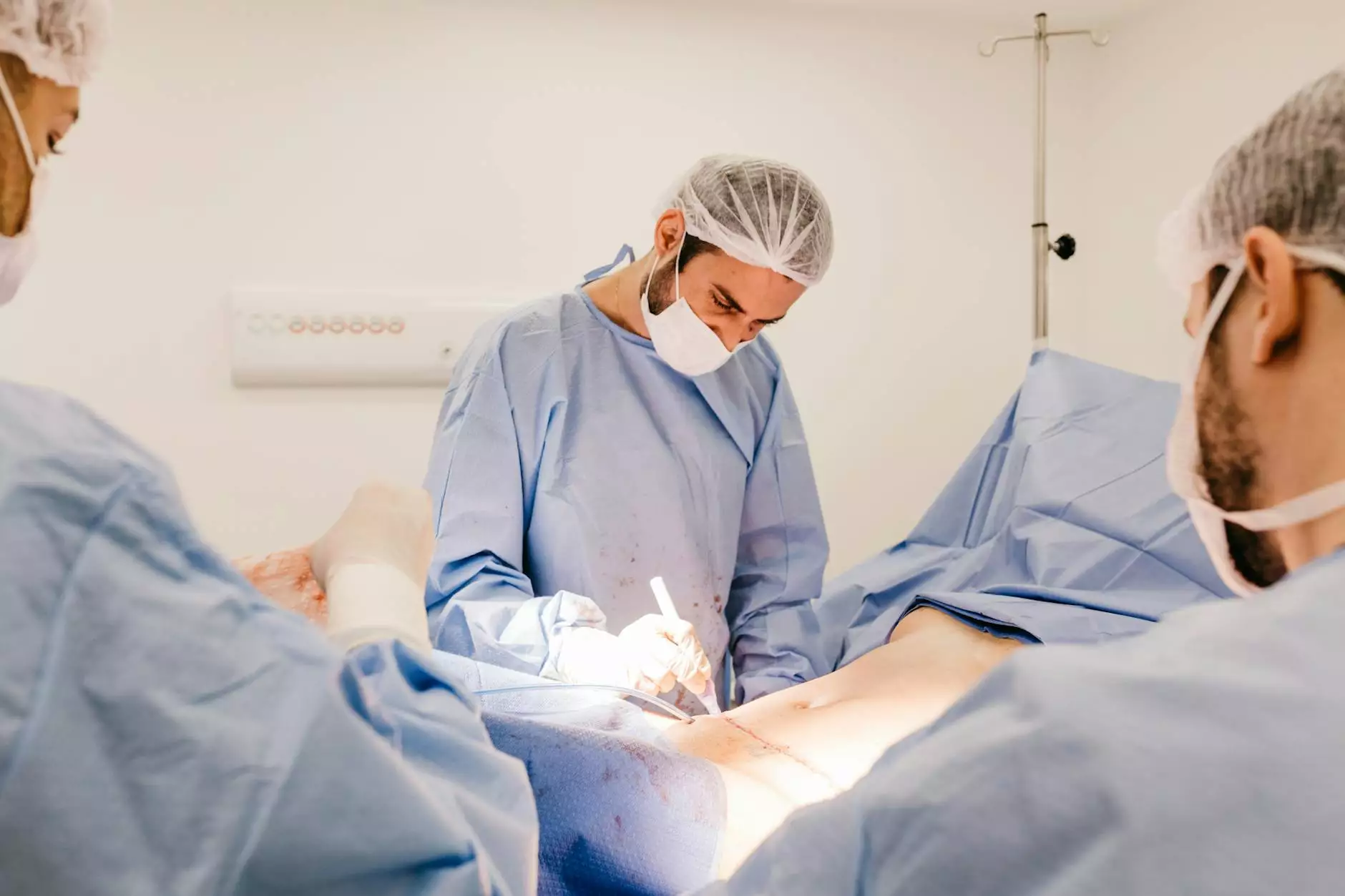Understanding the Role of a **Lung Cancer Surgeon**

Lung cancer remains one of the most prevalent forms of cancer globally, significantly affecting the lives of millions each year. Early diagnosis and prompt treatment are crucial for improving survival rates, making the role of a lung cancer surgeon essential in the medical field. In this article, we will delve into the intricacies of lung cancer surgery, the qualifications of a specialized lung cancer surgeon, treatment options, and the comprehensive care patients can expect from expert surgeons at Neumark Surgery.
What is Lung Cancer?
Lung cancer is characterized by the uncontrolled growth of abnormal cells in one or both lungs. These cells can form tumors, leading to severe health issues. According to the American Cancer Society, lung cancer is the leading cause of cancer deaths in both men and women. Understanding its primary types, symptoms, and risk factors is crucial for both patients and healthcare providers.
Types of Lung Cancer
There are two main types of lung cancer:
- Non-small cell lung cancer (NSCLC): This is the most common type, accounting for about 85% of cases. It includes several subtypes, such as adenocarcinoma, squamous cell carcinoma, and large cell carcinoma.
- Small cell lung cancer (SCLC): This type is less common but more aggressive. It tends to spread quickly and is often diagnosed in later stages.
Symptoms of Lung Cancer
Recognizing the symptoms of lung cancer early can significantly impact treatment outcomes. Common symptoms include:
- Persistent cough that worsens over time
- Chest pain, especially when breathing deeply or coughing
- Shortness of breath
- Unexplained weight loss
- Coughing up blood
- Fatigue and weakness
Why Consult a Lung Cancer Surgeon?
A lung cancer surgeon plays a pivotal role in the treatment process. They specialize in surgical techniques to remove lung tumors and may also provide comprehensive care throughout the treatment journey. Consulting a surgeon early can improve patient outcomes significantly.
Qualifications of a Lung Cancer Surgeon
Finding the right lung cancer surgeon is crucial. Surgeons should have:
- Medical Degree: They must possess a medical degree (MD or DO) from an accredited institution.
- Residency Training: Successful completion of a residency in general surgery, followed by additional training in thoracic surgery.
- Board Certification: Certification by the American Board of Thoracic Surgery indicates proficiency and excellence in the field.
- Experience: A surgeon who specializes in and has extensive experience with lung cancer surgeries will provide the best care.
Surgical Options for Lung Cancer
Several surgical options can be considered by a lung cancer surgeon depending on the stage of cancer, its location, and the patient's overall health.
Types of Lung Cancer Surgery
The most common types of surgeries for lung cancer include:
- Lobectomy: Removal of a lobule (section) of the lung, typically for NSCLC.
- Pneumonectomy: Complete removal of one lung; this is more extensive and is typically reserved for advanced cases.
- Sectorectomy (Wedge Resection): Removal of a small section of the lung that contains the tumor.
- Thoracotomy: A large incision is made in the chest to access the lungs for both diagnosis and treatment, often through video-assisted thoracoscopic surgery (VATS).
Role of Minimally Invasive Surgery
Advancements in medical technology have revolutionized how lung cancer is treated. Minimally invasive procedures, such as VATS, allow surgeons to perform operations through small incisions, resulting in:
- Shorter recovery times
- Less postoperative pain
- Reduced risk of complications
Post-Surgical Care and Follow-Up
After surgery, patients enter a critical phase of recovery which is integral to their overall prognosis. A lung cancer surgeon and their team of healthcare professionals will provide a follow-up care plan that includes:
- Pain Management: Effective strategies to minimize discomfort.
- Physical Rehabilitation: Tailored exercises to help restore lung function and improve strength.
- Regular Monitoring: Scheduled appointments to monitor recovery and detect any recurrence early.
- Support Services: Access to counseling and support groups to aid emotional and psychological healing.
Innovations in Lung Cancer Treatments
The field of oncology is ever-evolving, with new treatments enhancing the landscape of lung cancer care. Lung cancer surgeons now work alongside oncologists to provide integrated treatment pathways, which may include:
- Chemotherapy: Systemic treatments that kill cancer cells which may be administered before or after surgery.
- Radiation Therapy: Used to target and kill cancer cells, often in conjunction with surgery.
- Immunotherapy: Emerging as a crucial line of treatment to stimulate the body’s immune response against cancer.
The Importance of Patient Support and Resources
Patients diagnosed with lung cancer need holistic care that extends beyond surgical treatments. At Neumark Surgery, we prioritize comprehensive support systems, including access to:
- Education Materials: Informative resources to help patients understand their condition and treatment options.
- Psycho-Oncology Services: Mental health support for patients and families navigating the challenges of lung cancer.
- Nutritional Counseling: Tailored dietary plans to support recovery and overall health.
- Patient Advocacy: Guidance through insurance processes and treatments.
Conclusion
The journey through a lung cancer diagnosis and treatment is undoubtedly challenging. However, with a specialized lung cancer surgeon in your corner, patients can achieve a better understanding of their options, gain confidence in their treatment plan, and experience improved outcomes. At Neumark Surgery, our commitment to *excellence in care* is unwavering. We are here to provide expert consultations, innovative surgical options, and unparalleled support to those battling lung cancer.
Take action today. If you or a loved one is facing a lung cancer diagnosis, don't hesitate to reach out to our dedicated team for compassionate consultation and world-class treatment tailored to your needs.









